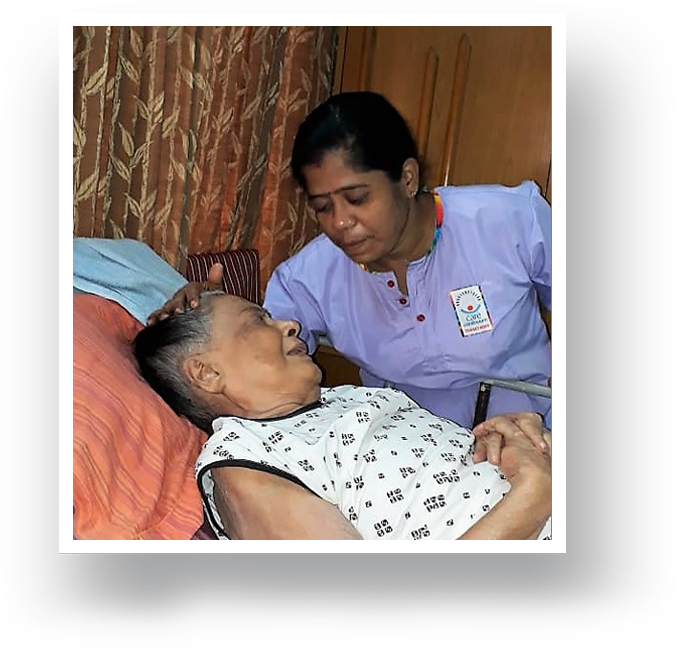September 2019 marks the 8th Alzheimer’s month ever celebrated worldwide, to create awareness about and dispel the stigma that surrounds Dementia – a growing health menace. This campaign was started by a UK based organisation, Alzheimer’s Disease International (ADI) for better advocacy and information sharing amongst all stakeholders involved with people living with Dementia. World Alzheimer’s Awareness day is celebrated on September 21st every year. Those seeking knowledge about caring for an elderly with Alzheimer’s must necessarily know about the Alzheimer’s month.
It is disturbing to know that according to the latest worldwide reports, a person is developing dementia every 3 seconds. Currently, the number of people suffering from Dementia in the world equals the population of South Korea! However, 2 out of 3 people in the world have little or no understanding of Dementia. So, it is important that each of us does our bit to propagate accurate information about the disease as well as help those diagnosed to find the right healthcare resources required to support them.
If you are really interested to know about elderly with Alzheimer’s perhaps because you have old parents at home to take care of, you should definitely read on.
Most people wanting to know about caring for Elderly with Alzheimer’s Patients think dementia is a byproduct of old age and means forgetfulness, which is natural for older people. This is far from the truth. While older people are more likely to forget things, this decline of the function of the brain is called ‘age related cognitive impairment’ and is not Dementia. In other words, caring for parent with dementia at home is a different story altogether.
Dementia is a disease which can affect anyone regardless of age but is known to predominantly occur in older people. It is a progressive neuro-degenerative illness which affects not only memory but also thinking, behavior and emotions of the sufferer. The disease begins with simple forgetfulness which most people attribute to stress. However, as the days pass, the extent of this forgetfulness increases beyond the casual. Imagine, not being able to find your almirah keys and then finding them a day later in the freezer, or suddenly not being able to remember where your apartment is! This is why it is necessary to plan out the activities for elderly with Alzheimer’s so that the loss of memory functions does not snowball into an acute problem.
What’s actually happening in the brain during this time is an irreversible damage to neurons through the build up of unwanted proteins which block their signalling systems. Now, this is also the usual manner in which aging slows down our brains except that the nature of the proteins and the extent of the accumulation differs. There are several types of Dementia of which the commonest one is Alzheimer’s disease or cortical dementia. Damage to the brain cells in Dementia is worsened by tiny undetected strokes which happen in hypertensives and diabetics. Yet, despite such damage, some people seem to have extra reserves of neurological processing, which appear to compensate and hence, they never develop any signs of the disease. Due to the complexity of the disease, people also tend to fear that life expectancy of elderly with Alzheimer’s will be low. But this need not necessarily be the case.
All in all, Dementia is an extremely complex condition and till today, researchers are struggling to identify the exact causes behind it. PET & MRI Scans help to diagnose the deposits in the brain to identify the illness, when patients are showing symptoms. Sadly, once the diagnosis is proven, there is very little in terms of quick fix solutions like medications which can help the patients. No new drug discoveries have been made in the field of treatment for Dementia for more than 20 years now and the current drugs available to treat Dementia do not have definite or predictable outcomes for all patients unlike say medicines for Diabetes or high blood pressure. More and more studies are indicating though that Dementia is at least preventable or remediable in part by following the conventional good advice of a healthy diet, and regular exercise. In other words, dementia care at bedside is the best way to treat parents with Alzheimer’s.
Also, it is possible to arrest the progress of Dementia once diagnosed through a multidisciplinary approach – not just in terms of multiple classes of drugs for preservation of memory & cognition but also in the management of Behavioural and Psychological disorders in Dementia. Let by a nurse, occupational therapist and psychologist, techniques such as cognitive stimulation performed with individuals and groups can bring about a remarkable restoration of the activities of daily living for patients.
Home Health companies like Care Continuum are introducing pioneering new concepts of Movement Psychotherapy and Neurodevelopmental Integration Techniques for patients with Dementia and reporting excellent outcomes. Further research is required in this vast field but one thing easy to understand about patients with Dementia is that they always respond to the human touch. Patience and compassion often achieves miraculous results and even if they may not recognise you, they will always feel your love. So, we all can do our best for them by showing them that we care and help to spread the word.


